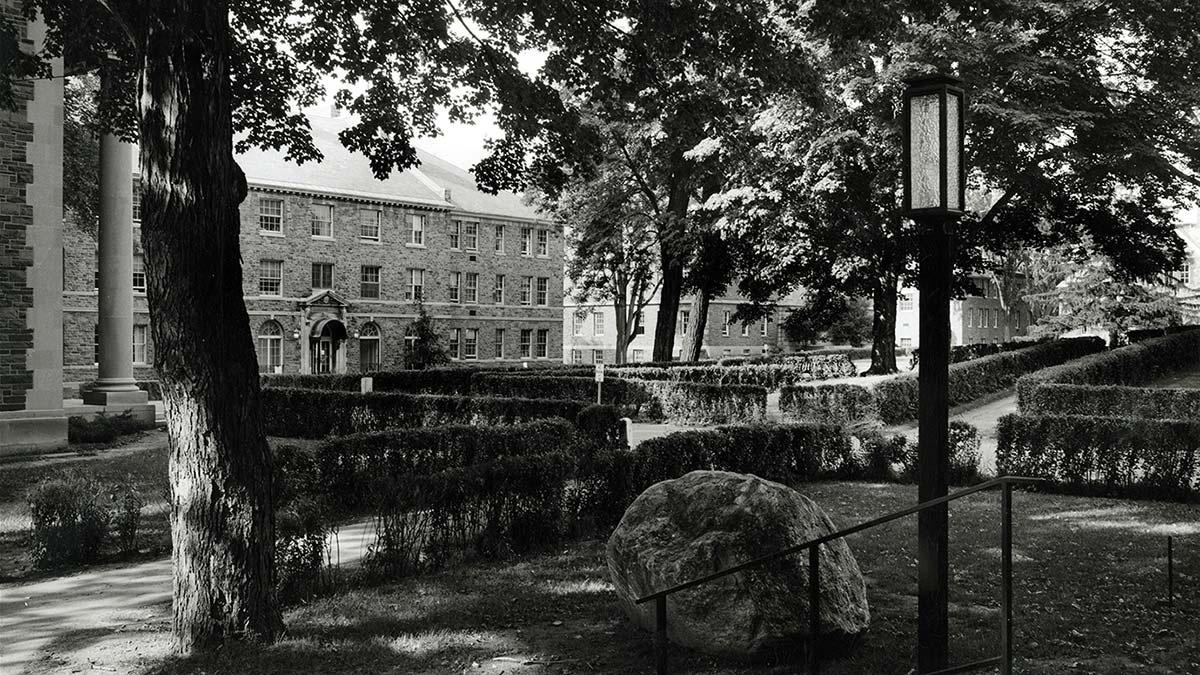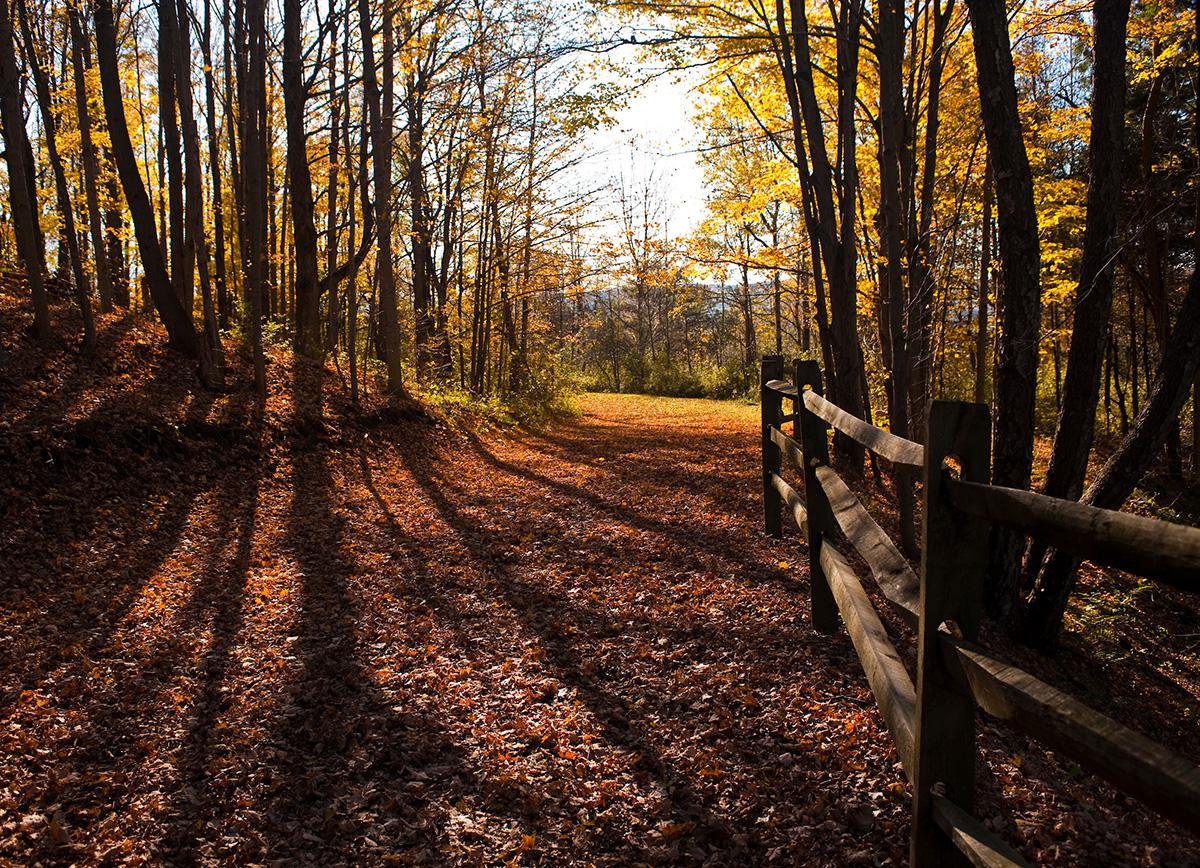Colgate University’s trees and forests are managed using principles of sustainability that emphasize teaching and research, outdoor recreation and aesthetic value, conservation of ecosystem services and biodiversity, light timber production, and forest carbon storage and sequestration.

